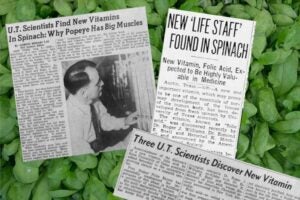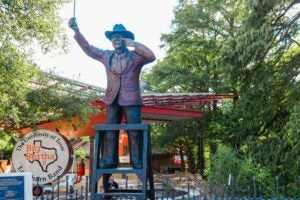The Harry Ransom Humanities Research Center at The University of Texas at Austin has acquired two unpublished letters written by playwright Tennessee Williams to his friend and former intimate Pancho Rodriguez Gonzalez, who inspired the character of Stanley Kowalski in “A Streetcar Named Desire” (1947).
The first letter dates to 1947 New York, just after Gonzalez’s departure for New Orleans and just before rehearsals began for the Broadway production of “A Streetcar Named Desire.” The typed letter, signed “Tennessee” to “Dear Pancho,” is filled with details about Williams’s living situation and their mutual friends.
The second letter, undated but most likely written later, is an examination of Williams and Gonzalez’s relationship, prompted by a phone call to Williams from Gonzalez.
Within the letter Williams comments on how Gonzalez’s life is much happier than his and remarks; “Self-pity: my out-standing virtue.”
The second letter juxtaposes the lighthearted tone of the earlier one, in which Williams expresses relief that Gonzalez “arrived safely in New Orleans,” “missed the hurricane” and is with his mother and sister. Williams updates Gonzalez on the local news of the past week since he left, describes the apartment he will move into shortlyand complains about his present dwellingand talks about plans for the upcoming Broadway production. Williams also expresses shock at the price of rent in New York: “My rent here for the week is shocking – $156! – Two months rent in New Orleans.”
The letters are accessible as part of the Ransom Center’s existing Williams collection, more than 75 boxes of materials documenting the family, life and work of the writer. The collection contains numerous manuscript drafts, including those for his best known plays “The Glass Menagerie” (1944) and “A Streetcar Named Desire.” Also included are correspondence, photographs and newspaper clippings.



